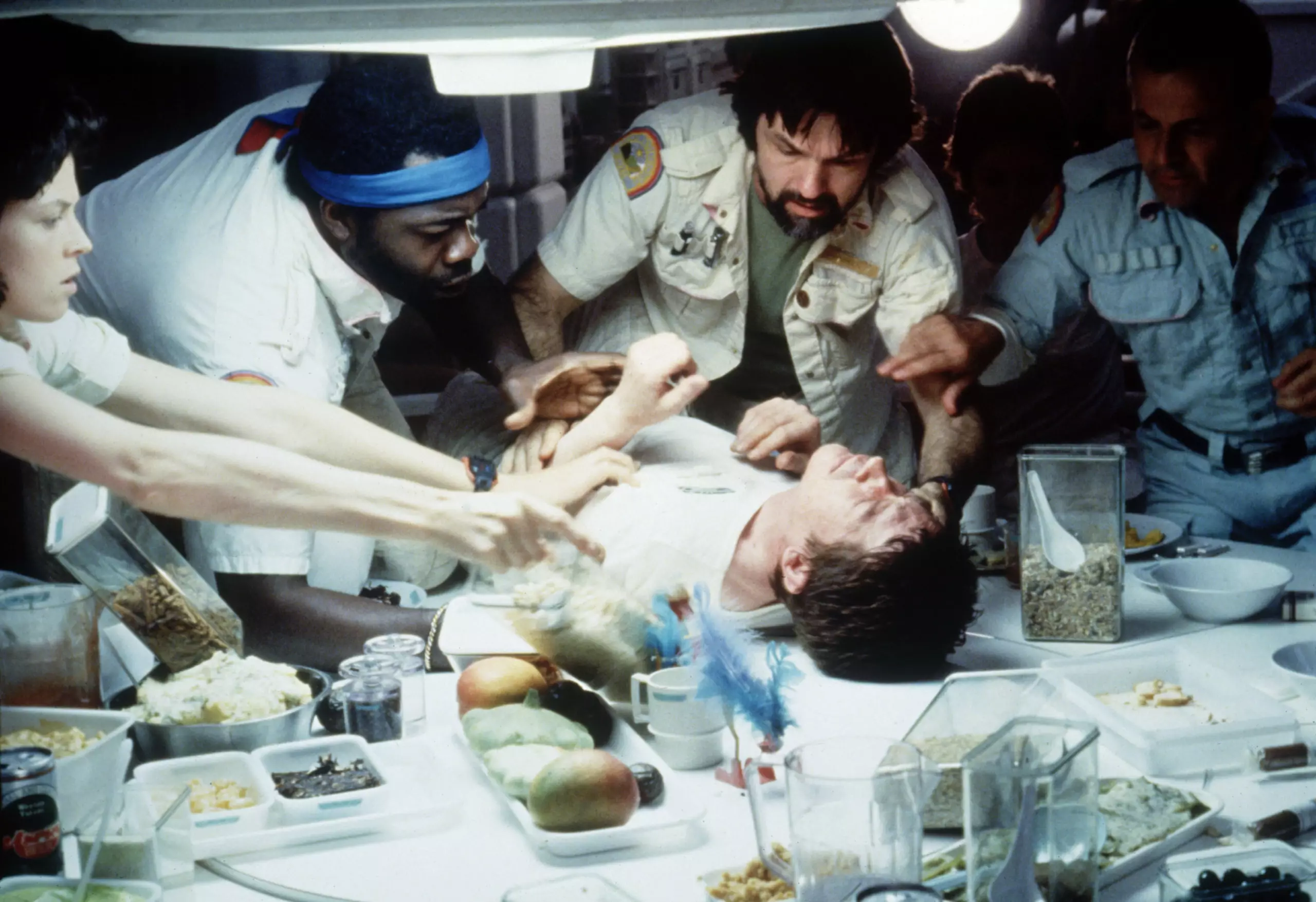The transformative impact of Ridley Scott’s 1979 film ‘Alien’ continues to resonate in the realms of sci-fi and horror, shaping cinematic endeavors even over four decades later. Renowned for its masterful storytelling and atmospheric tension, ‘Alien’ heralded a new era in filmmaking, crafting not only a gripping narrative but also influencing the art of suspense and horror on screen. Tom Skerritt, who portrayed Captain Dallas aboard the ill-fated Nostromo, provides insight into the making of the film, shedding light on his experiences, the directing style of Scott, and the film’s remarkable legacy.
Ridley Scott’s artistry remains a critical focal point in the film’s creation. Skerritt reflects on the challenges of working with a director who was immersed in his vision. Notably, he describes that their interactions were often fleeting, with Scott preoccupied with the aesthetic elements of the film. This intensity, however, inspired Skerritt, who recognized the necessity of Scott’s unwavering focus. While their conversations were minimal, the captain of the Nostromo gleaned volumes from witnessing Scott’s directorial process firsthand. Skerritt’s admiration reflects a profound respect for the dedication and artistry that shaped ‘Alien’, highlighting how crucial it is to engage with creative individuals who push the boundaries of their craft.
When Skerritt first encountered the scripts for ‘Alien’, he did not possess the optimism one might expect. With a mere $2 million budget and no established director, the initial presentation of the script felt bleak. His outlook shifted dramatically once he learned that Ridley Scott would be directing and that the budget would increase to $10 million. It was this juncture that transformed Skerritt’s anxieties into anticipatory eagerness. He eloquently conveys the pride he felt in joining a cast that included respected actors like Ian Holm and John Hurt. This shift in perspective not only signified hope for the project but also revealed the potential for greatness hidden within the pages of what might have seemed a modestly ambitious screenplay at first glance.
One cannot discuss ‘Alien’ without acknowledging the profound influence of H.R. Giger’s design work. Skerritt described the sensations evoked by Giger’s dark, mechanical artistry that enveloped the sets. While he admitted to preferring brighter aesthetics, he recognized that Giger’s elaborate designs contributed to the film’s eerie ambiance. These unsettling visuals immersed the cast in an otherworldly atmosphere that accentuated the film’s themes of claustrophobia and existential dread. The physical presence of the sets, crafted from materials like Styrofoam, even contributed its own unique aroma to the experience, underlining how pivotal every tactile detail was in establishing the film’s iconic tone.
One of the most notorious scenes in film history is certainly the chestburster sequence, and Skerritt’s accounts of filming this scene reveal the chaotic brilliance behind its execution. The uniqueness of the moment stemmed from the necessity of capturing genuine reactions, leading to the need for a single flawless take. This approach elevated the stakes, ensuring that the visceral shock of the scene was authentic, not rehearsed. Skerritt recalls his astonishment as the crew prepared for the theatricality of the moment, revealing the gruesome preparation behind the special effects. The unexpected nature of the explosion, paired with visceral special effects, not only jolted the audience but also deeply affected those present, including Veronica Cartwright, whose visceral shock was palpable on set.
Reflecting on a film that has since been recognized as a classic, Skerritt articulates a sense of historical awareness among the cast. Even amid challenges, he sensed that they were on the cusp of creating something profound. This sentiment was echoed in interactions with fellow cast members, particularly Yaphet Kotto. The awareness that they were part of cinematic history imbued their experience with a unique sense of purpose. Today, the enduring legacy of ‘Alien’ is evident not only in the survival of the franchise but also in the continual scholarly discourse surrounding its themes, aesthetics, and impact on culture and film.
The enduring legacy of ‘Alien’ can be attributed to its innovative storytelling, visual artistry, and the talented individuals who brought it to life. As Tom Skerritt reflects, the film’s creation was as much about the journey and collaborative experience as it was about the final product. ‘Alien’ remains a testament to the power of creativity, vision, and the lasting effects of a compelling story on the landscape of film.


Leave a Reply